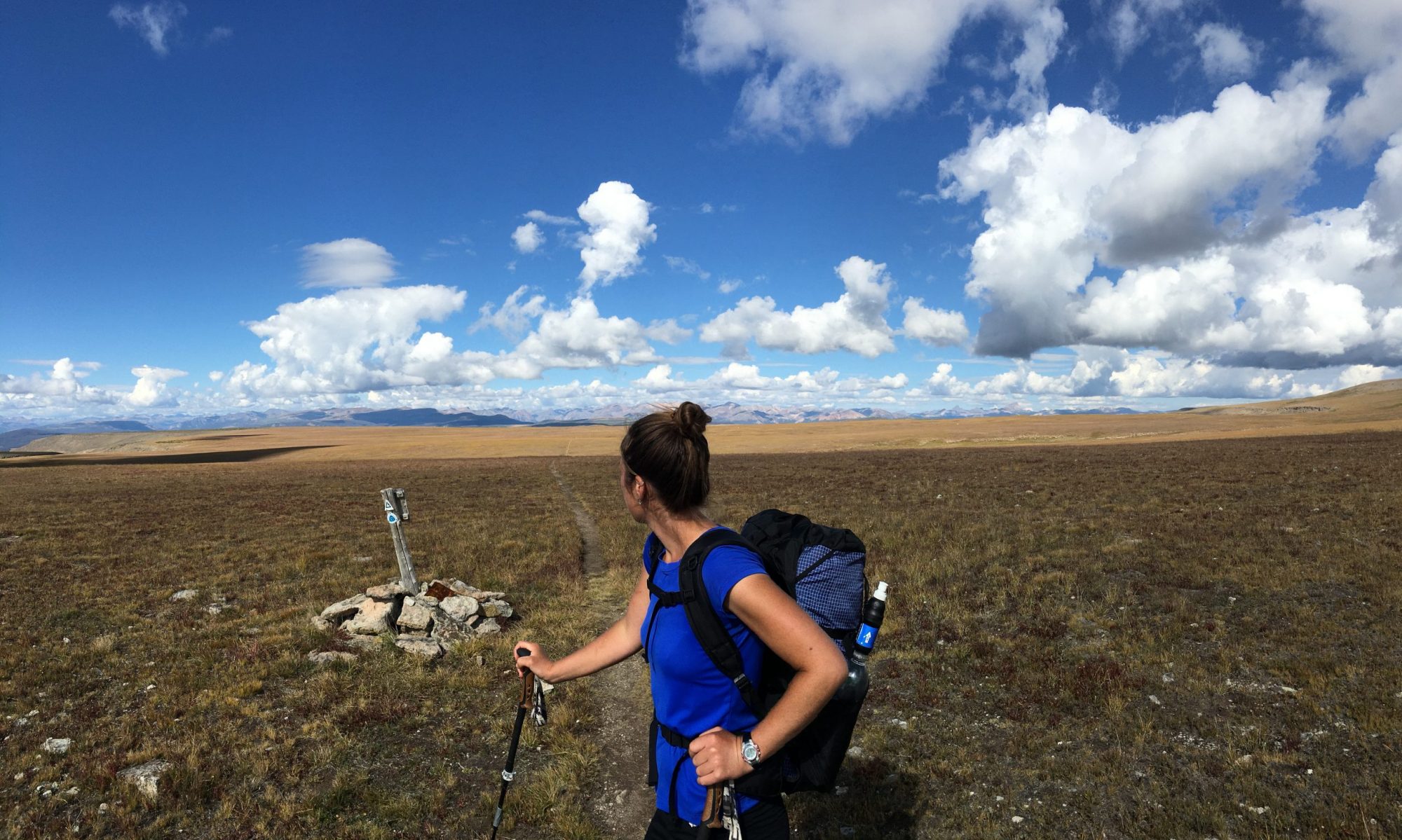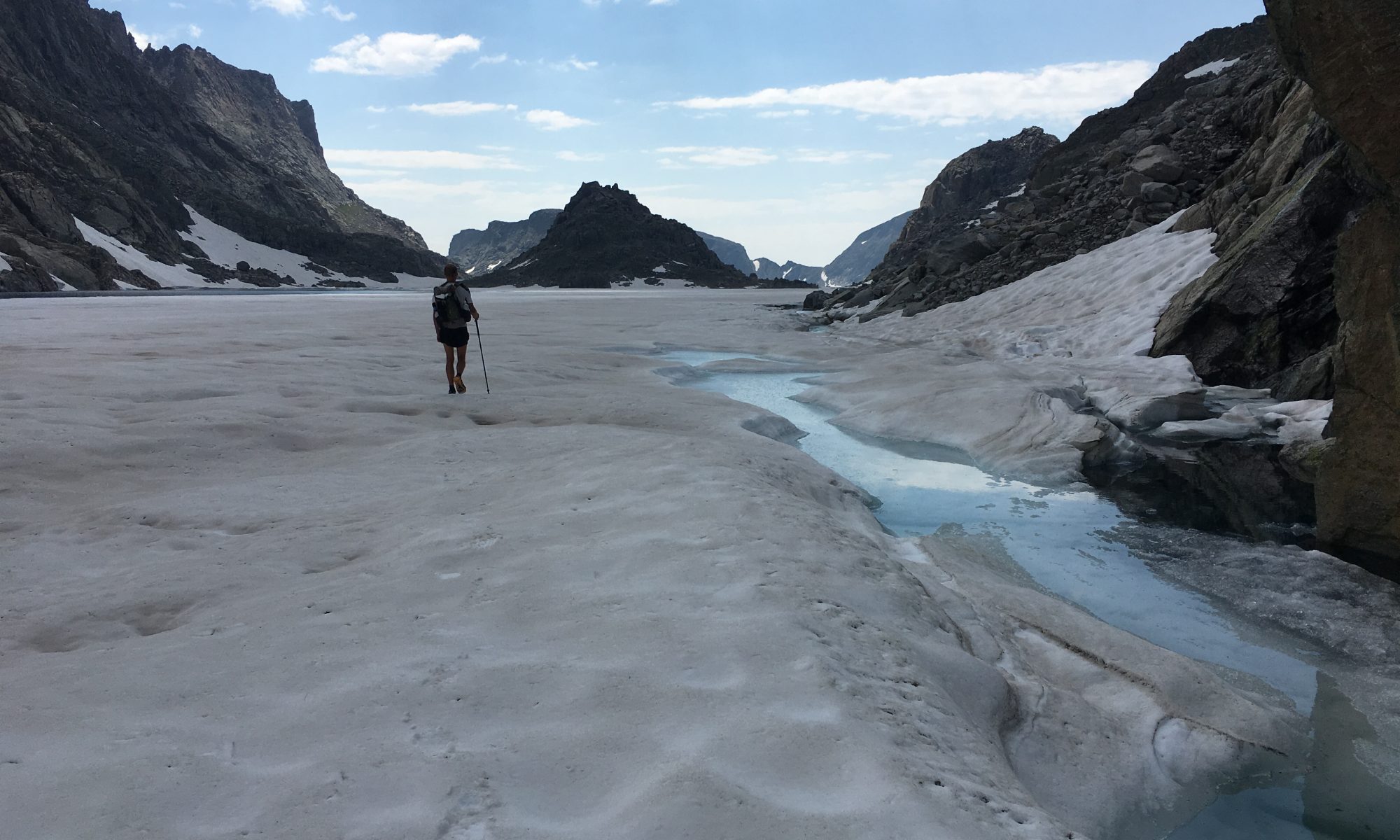Fear is essential for our survival, but when it runs rampant in your mind, it can hold you back from pursuing outdoor adventure dreams, such as thru-hiking a long trail. At minimum, it can cause you to pack unnecessary items or to make unfounded changes to your itinerary.
If fear has held you back from embarking on a backcountry adventure, you’re certainly not alone. In my experience, personally and from working with hundreds of clients and students, fear is a universal experience. This is particularly true when facing unknown and (seemingly) unpredictable circumstances, such as in nature. In this post, I share how I personally work with and learn from my fear, so that it no longer runs the show.
Even after 8000+ backpacking miles and hundreds of nights spent sleeping on the ground, I still have fears about trips to the backcountry. As I’ve gained experience, skills, and knowledge, my fears have shifted, and I’ve learned how to examine and work with them, instead of ignoring them, suppressing them, or allowing them to run the show.
Fear exists for a reason
This post is not about crushing your fears or becoming fearless. Fear exists for a reason, which is to keep us safe from physical danger. It’s important and necessary. WIthout a healthy amount of fear, we wouldn’t last long. The problem with fear is that we allow ourselves to fear things that aren’t actually life-threatening and we often exaggerate the perceived danger to the point where it becomes an unkillable dragon in our minds.
My approach to fear is to work with it and learn from it, not fight against it or ignore it. I believe my job, as a somewhat rational adult, is to get to the root of the fear, determine its validity, and use it to help me make decisions and learn.
What is there to fear?
While there might be concerns that come up in the planning process, such as fear of leaving a stable income, this post is about the common fears that arise when you think of going on a multi-night trip in the backcountry.
For instance:
- Being cold
- Navigation challenges and getting lost
- Cold, wet weather
- Sleep comfort (cold temperatures, things crawling into tent while you sleep)
- Hunger
- Wildlife – especially bears, bugs, and big cats
- Being alone
- Unexpected medical issues
- Terrain – river crossings, heights, exposure
These types of fears prevent many people from going out into the backcountry and causes them to miss out on incredible life experiences. Each of these concerns does include some degree of risk, but often it’s much less than we think and the risks can be mitigated.
The following process is how I’ve learned to work with these types of fears and how you can too.
Note that this does not apply to circumstances where I’m in actual physical danger. When real danger is present, fear is a healthy response, one should “listen” to that fear and extract themselves from the source of the danger as quickly as possible.
This process is for working with fear of an event that hasn’t actually occurred.
Name it.
Acknowledge that it exists, feel the fear, and name it. Get to know the sensations and behaviors that indicate to you that you might be dealing with fear of a situation. Sometimes, you can’t always pinpoint what it is at first, but you may be experiencing a tightening in the chest, a pit in the stomach, anxiety, irritability, and procrastination. Get honest with yourself about what you’re feeling. Example: I’m afraid I might get lost if I go on this trip solo and it’s causing me to feel anxious about my trip, and I’m thinking about canceling.
Write it down.
When things stay up in our minds, they can get blown out of proportion and feel larger than life. Putting your fear down on paper helps you see it for what it is and begin to process it. Write down everything you’re afraid will go “wrong”.
Question it.
Once you have it on paper, question it. If this thing happens, what’s the consequence? Playing the scenarios through in your mind accomplishes a few goals.
- It takes some of the power away from the fear because you’ve dissected it and explored exactly what the consequences might be and how bad they actually are.
- It allows you to determine how likely those consequences are to occur.
- It helps you to make a realistic plan for how you can avoid the worst case scenario.
- It allows you to have a plan for what you’ll do if it happens.
On a piece of paper, write down what you’re afraid of. In a column next to that, write down the consequences if the thing you’re afraid of happened. Next to that column, write out how you could respond if that thing happened. Next to that column, jot down some ideas for how you could prevent yourself from that situation in the first place.
Research the likely conditions.
How realistic is your fear? Researching the likely conditions for your trip allows you to know what to expect. That provides a sense of safety and allows you to prepare yourself with the correct gear and skills. Research conditions such as expected temperatures, precipitation, weather patterns, wildlife, remoteness, navigational challenges, and more. The more data you have on your trip, the more confident you will be. Your fears begin to dissolve when you realize the likelihood of them happening is often very small and that you have a plan if they do.
Prepare yourself.
Once you know what to expect, you can prepare yourself. Educate yourself on how to handle animal encounters or safely cross snow fields, for example. Plan your clothing choices and sleeping bag based on the expected weather conditions. Skilling up for your outing helps to increase confidence and diminish fear.
Avoid the risks you can and brainstorm on how you can make choices that mitigate the risks you can’t entirely avoid. For example, there’s inherent risk in hiking solo, but you can carry a satellite communication device and leave a detailed itinerary with someone at home to reduce the risk.
Check out our Stay Safe in the Backcountry Course and Become a Better Backcountry Navigator Course to prepare you to embark on your next outing with greater skill and confidence!
Get into action.
At least 90% of my anxiety dissolves as soon as I get into action and start doing the thing. Once I take the first few steps of a hike, I’m so glad I didn’t let me fears hold me back. There are very real dangers in the backcountry, but like in other parts of life, there are ways to prepare yourself and mitigate the risk. Remember that your mind is a very powerful force. When you allow your fears to grow unchecked, it can lead to a life of regrets and unlived dreams.
One of my favorite quotes on the topic of fear:
“A ship in harbor is safe — but that is not what ships are built for.” — John A. Shedd
Enroll in our free healthy, UL meal planning course to help you prepare for your next backcountry adventure.


One Reply to “How to Overcome Fear and Embark on Your Outdoor Adventure”